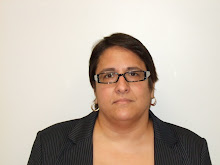Now Here's an Interesting Case. . .
"Second Circuit Vacates Convictions Due to Improper Admission of "Officer Expert" Testimony
A frequent occurrence at trial is the presentation of the "officer expert" – a police officer or agent who testifies about aspects of a criminal scheme that are outside the experience of a typical juror, such as organizational hierarchies or jargon used by the participants. The problem with this kind of testimony, as the Second Circuit noted yesterday in United States v. Mejia, 05-2856-cr, 2008 WL 4459289 (2d Cir. October 6, 2008), is that "[w]hen case agents testify as experts, they gain 'unmerited credibility when testifying about factual matters from first-hand knowledge.'" In Mejia, the Court has given eloquent expression to the defense's objection to such evidence:
[The use of officer-expert evidence] must be limited to those issues where sociological knowledge is appropriate. An increasingly thinning line separates the legitimate use of an officer expert to translate esoteric terminology or to explicate an organization's hierarchical structure from the illegitimate and impermissible substitution of expert opinion for factual evidence. If the officer expert strays beyond the bounds of appropriately "expert" matters, that officer becomes, rather than a sociologist describing the inner workings of a closed community, a chronicler of the recent past whose pronouncements on elements of the charged offense serve as shortcuts to proving guilt . . .
The Government cannot satisfy its burden of proof by taking the easy route of calling an "expert" whose expertise happens to be the defendant.
Facts
Mejia and his co-defendants were charged with various violent acts that supported the notorious MS-13 gang. At trial, the government presented the testimony of Hector Alicea, a police officer, as an expert witness on MS-13's background, "its history, its presence on Long Island, and its national and international presence; about the gang's colors, hand signs, graffiti use, naming practices, and tattoos; and about its local subunit structure, leadership structure, division of responsibilities, and membership rules." In addition, Alicea testified to more specific details about MS-13's operations: how they traveled to other states, their attendance at organizational meetings and how they spent money on guns and narcotics. He also summarized specifics of the investigation, including firarms and ammunition seizures, arrest for narcotics trafficking, and the numbers of murders MS-13 had allegedly committed on Long Island between June 2000 and the trial. The defendants were convicted on all counts.
Holding
Vacating the convictions, the Court agreed with the defendants' objections to Alicea’s testimony. The Court found the testimony problematic on three levels (and non-harmless error):
- Alicea testified about facts that were "well within the grasp of the average juror" – such as statistics from the investigation of this case about actual firearms seizures, arrests for narcotics trafficking, and commission of murders. "No expertise is required to understand any of these facts." In effect acting as a "case-agent," " [t]hose parts of [Alicea's] testimony that involved purely factual matters, as well as those in which [he] simply summarized the results of the Task Force investigation, fell far beyond the proper bounds of expert testimony."
- Some of Alicea's testimony involved "merely repeating information he had read or heard – information he learned from witnesses through custodial interrogations, newspaper articles, police reports, and tape recordings:" While experts may rely on hearsay evidence and "analyze" or "synthesize" this evidence, "[t]he expert may not, however, simply transmit that hearsay to the jury."
- Alicea’s testimony improperly communicated out-of-court testimonial statements of cooperating witnesses and confidential informants under the guise of expert testimony, in violation of the Confrontation Clause and the Supreme Court's holding in Crawford v. Washington, 541 U.S. 36 (2004). Significantly, the Court went on to point out that since Alicea clearly communicated one fact to the jury that he had learned from a co-conspirator's proffer statements (a very specific fact regarding MS-13’s tax policies), "[t]his impugn[ed] the legitimacy of all of his testimony and strongly suggests that Alicea was 'simply summarizing an investigation by others that was not part of the record,' and presenting it 'in the guise of an expert opinion.'"
Comment
This case highlights how cavalier the government has become in presenting officer-expert testimony, to the extent that it, in this case, the government back-doored a co-conspirator's proffer statements through the so-called "expert." The case is an important reminder of the importance of exploring the basis for this testimony (as the defense lawyers did so impressively here) and objecting to it, while simultaneously providing terrific ammunition in ensuring that that objection is heard. Practitioners should be especially wary of prosecutors' efforts to end-run the holding in this case, by getting their "expert-officer" to present all his/her improper facts via some bogus "synthesizing" questions."
Excellent blog at http://www.nyfederalcriminalpractice.com/2008/10/second-circuit-vacates-convict.html

No comments:
Post a Comment